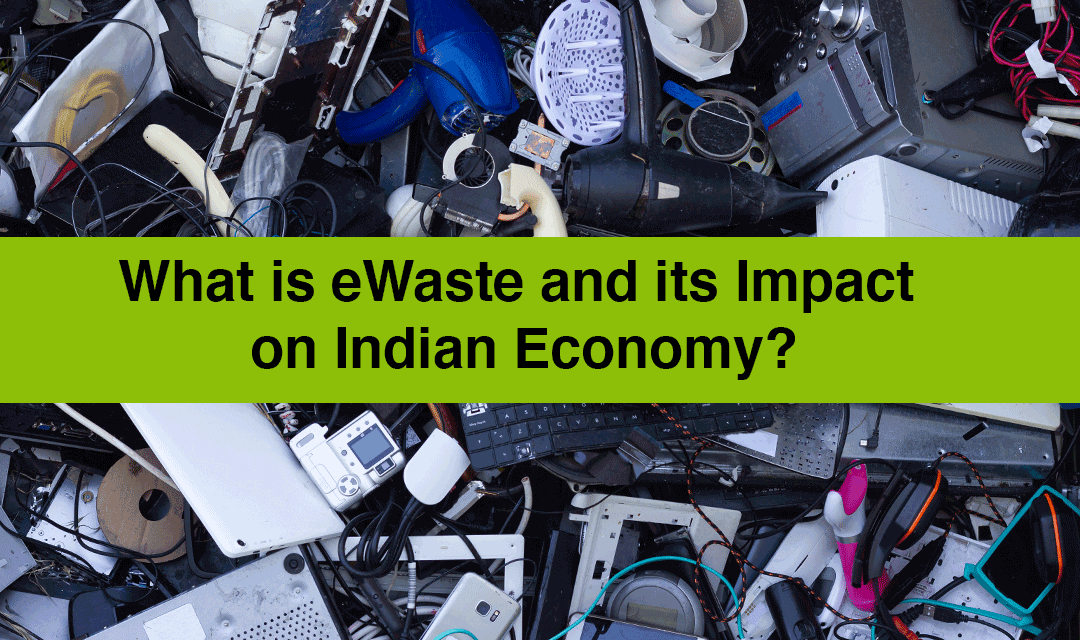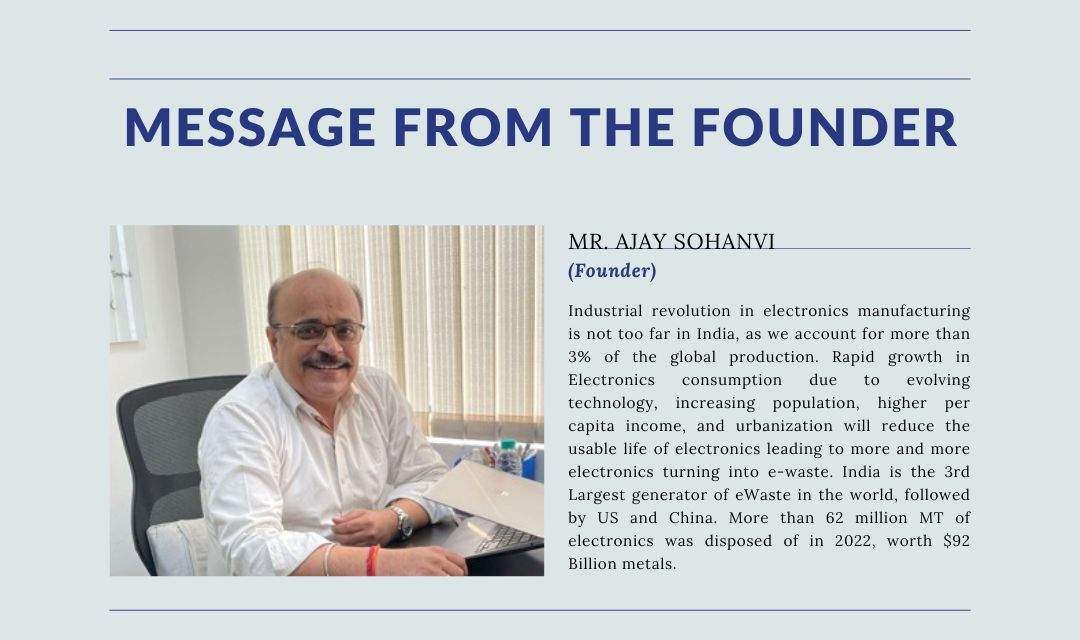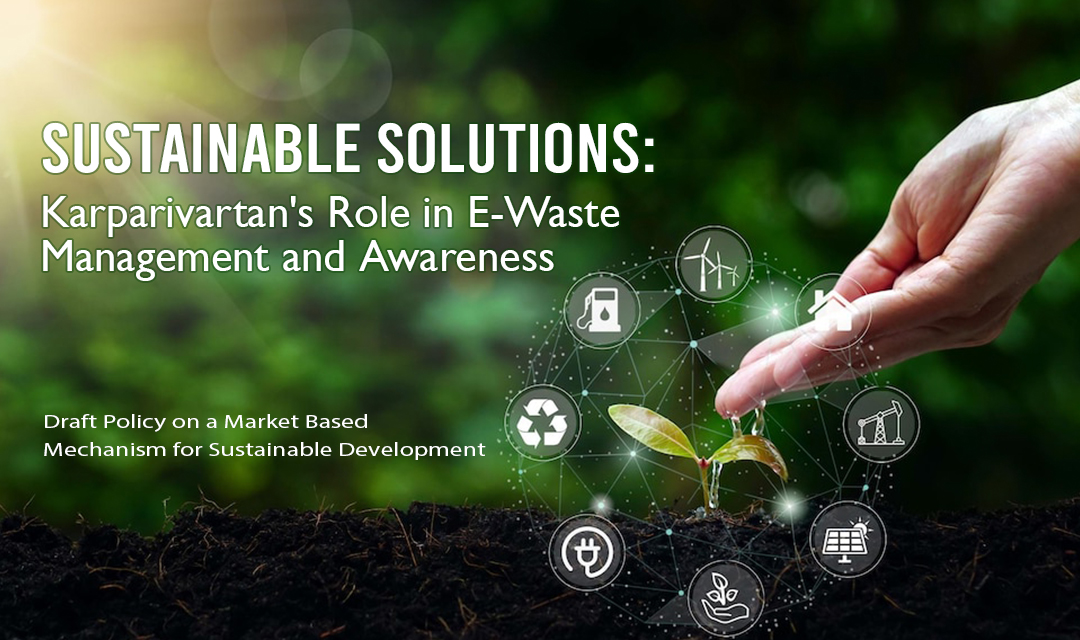E-Waste, or electronic waste, refers to discarded electronic devices and equipment that have reached the end of their useful life. It includes items such as computers, laptops, mobile phones, televisions, refrigerators, printers, and other electronic appliances. The improper management of eWaste can have significant impacts on the Indian economy. Here’s an overview:
- Environmental Impact: Improper disposal and handling of eWaste can lead to environmental pollution. Many electronic devices contain hazardous substances like lead, mercury, cadmium, and brominated flame retardants. When eWaste is improperly disposed of or incinerated, these harmful substances can contaminate soil, water bodies, and the air, posing risks to human health and the environment.
- Health Risks: The informal recycling and dismantling of eWaste often involve unsafe practices. People, including workers and local communities, who are exposed to eWaste without proper protective measures, may suffer from health issues. Exposure to hazardous chemicals and heavy metals can cause respiratory problems, neurological disorders, skin ailments, and other health complications.
- Resource Depletion: Electronics contain valuable resources like precious metals, rare earth elements, and other recyclable materials. When E-Waste is not properly managed, these resources are lost and go to waste. By adopting proper E-Waste recycling practices, valuable resources can be recovered, recycled, and reintroduced into the economy, reducing the dependency on virgin raw materials and contributing to resource conservation.
- Economic Loss: India is one of the largest consumers of electronic products, leading to a significant amount of eWaste generation. However, the lack of proper eWaste management infrastructure results in a missed economic opportunity. If eWaste is managed effectively, it can contribute to job creation and revenue generation through activities such as eWaste collection, sorting, recycling, and the refurbishment of reusable electronics.
- Informal Sector Challenges: The informal sector plays a significant role in eWaste management in India. However, it faces challenges such as low income, unsafe working conditions, and lack of access to proper technologies for safe recycling. The formalization and integration of the informal sector into the eWaste management value chain can bring socio-economic benefits by providing better livelihood opportunities and improving occupational health and safety standards.
- Circular Economy Potential: Proper E-Waste management aligns with the principles of a circular economy. It enables the recovery and recycling of valuable materials, promoting a more sustainable and resource-efficient approach to electronics production. By implementing effective E-Waste recycling practices, India can move towards a circular economy model, reducing waste, conserving resources, and minimizing environmental impacts.
To address these challenges and harness the potential benefits, the Indian government has implemented the e-Waste (Management) Rules, 2016 and 2022, to regulate the proper handling, recycling, and disposal of eWaste. Various initiatives, awareness campaigns, and collaborations between government, industry, and civil society organizations are also being undertaken to improve eWaste management practices and promote a sustainable and inclusive eWaste ecosystem in India.




